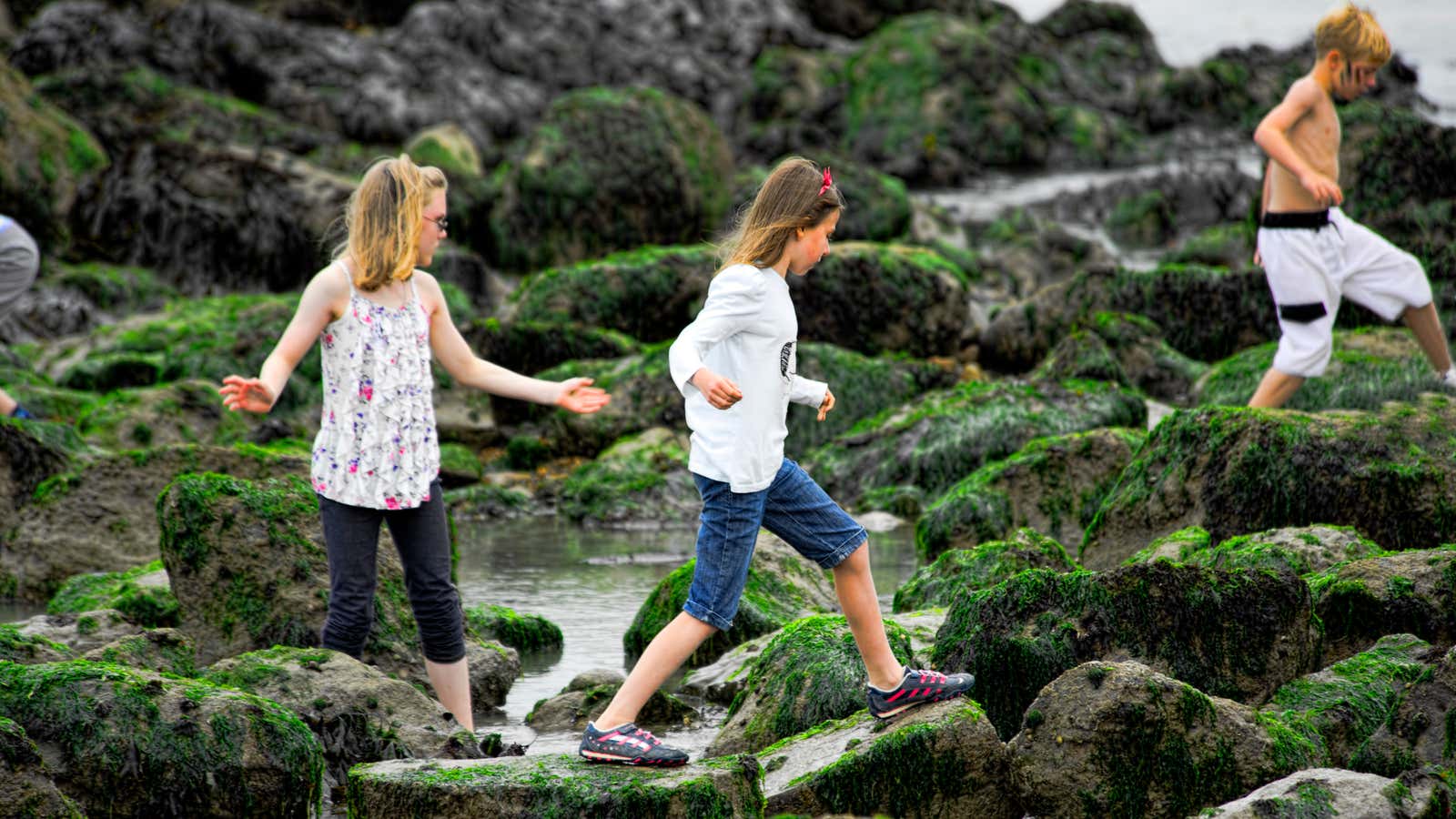We all remember that one angry kid who used to stomp all over other children’s sandcastles on the playground. The one who threw temper tantrums in class and hogged all the best toys at recess.
According to new research, these kinds of kids—often physically aggressive, emotional, and careless towards others’ property—are more likely to have been raised with half- and step-siblings. Sociologists at the University of Michigan and the University of Colorado-Boulder studied data on approximately 6,500 American children and families found an underlying trend: kids who lived with complex sibling relationships were 10% more aggressive than kids without half- or step-siblings in their household.
These findings, published this month in the journal Demography, drew on reports from each child’s primary parent on how often the child displayed aggressive behavior at the age of five. They add nuance to the prior scientific conversation on family and development, which focused on parental-union status, not siblings.
While researchers managed to lock down a link between step-sibling living situations and aggression, though, they don’t know why this happens.
It’s not that young children in traditional family structures are inherently more stable than those in complex sibling relationships; those in the latter situation may just have a lot more to deal with, the study’s lead author Paula Fomby suggests.
For instance: The arrival of a new sibling often leads to an uneven distribution of material and emotional resources among a family’s children. And parental absence—as all complex sibling structures lack at least one child’s biological parent in the home—is likely to play a role, too.
There’s a lot more work to be done on these links, given that one in six children in the US lives with half- or step-siblings before starting kindergarten.
Image by Steve Slater on Flickr, licensed under CC BY 2.0.
